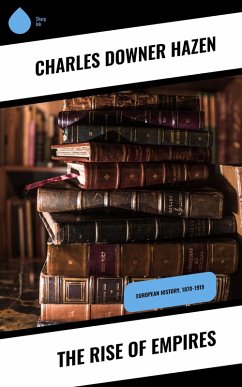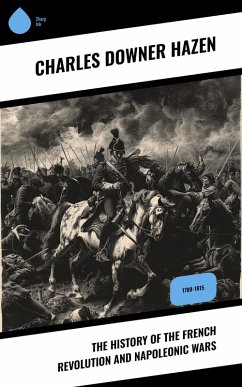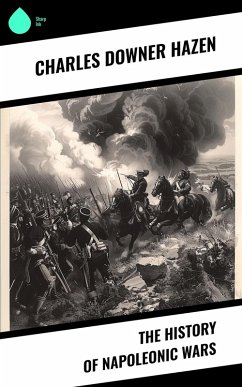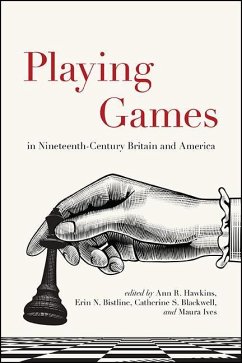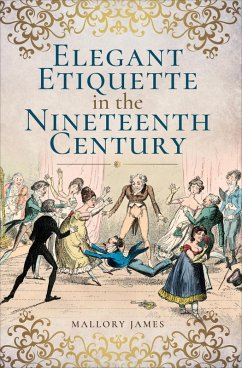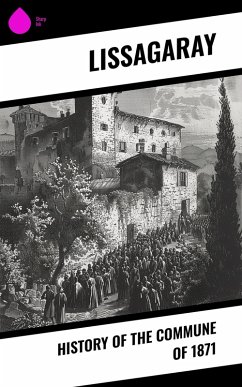
The Long Nineteenth Century (eBook, ePUB)
History of Europe (1789-1918)

PAYBACK Punkte
1 °P sammeln!
In 'The Long Nineteenth Century', Charles Downer Hazen embarks on a comprehensive exploration of the socioeconomic and political transformations spanning from the late 18th century to the early 20th century. Hazen adopts a narrative style that interweaves meticulously researched historical analysis with engaging prose, making complex ideas accessible to a broader readership. He delves into major themes such as industrialization, imperialism, and revolutionary ideologies, situating these developments within the broader context of European and American history, thereby allowing readers to apprec...
In 'The Long Nineteenth Century', Charles Downer Hazen embarks on a comprehensive exploration of the socioeconomic and political transformations spanning from the late 18th century to the early 20th century. Hazen adopts a narrative style that interweaves meticulously researched historical analysis with engaging prose, making complex ideas accessible to a broader readership. He delves into major themes such as industrialization, imperialism, and revolutionary ideologies, situating these developments within the broader context of European and American history, thereby allowing readers to appreciate the interconnectedness of global events during this pivotal era. Hazen, an eminent historian and educator, was influenced by the tumult of his times, particularly the global conflicts and political upheavals shaped by rapid industrial changes. His academic background, including a focus on European history, provided him with the insights and frameworks necessary to articulate the complexities of the 19th century. As a scholar deeply invested in understanding the social fabric of his era, Hazen's work reflects a rigorous commitment to disclosing the nuances of historical processes that shaped modern society. This book is highly recommended for both students and enthusiasts of history, as it encapsulates a critical period while skillfully linking past events to contemporary issues. Hazen's engaging narrative and insightful analysis provide invaluable perspectives that resonate with our present, making 'The Long Nineteenth Century' a must-read for anyone seeking to understand the foundations of today's global landscape.
Dieser Download kann aus rechtlichen Gründen nur mit Rechnungsadresse in A, B, BG, CY, CZ, D, DK, EW, FIN, F, GR, HR, H, IRL, I, LT, L, LR, M, NL, PL, P, R, S, SLO, SK ausgeliefert werden.





